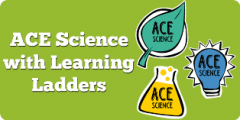tips & advice
-
Posted on: Apr 08, 2020
As parents, we know reading is better for children than watching TV or playing online games, but are we all aware how much better and why schools place such an emphasis on getting kids reading?
With schools closed and normal life suspended for everyone we are all scrabbling around trying to think how best to support our children. Parents are taking on a new role as home educators, even though most of us have very limited experience in this and children and young people may additionally be scared, worried and frustrated.
There are a huge number of digital resources out there, and schools will be sharing links with families on what systems they are using to keep children learning their school subjects. However, there is also a hugely important additional way you can support children academically and emotionally and that is to encourage them to read.
Children who read for pleasure do better in school and in life than children who don’t. There are a number of academic s
-
Posted on: Feb 17, 2020
“We need to live in a culture that values, respects, looks up to and idolizes women as much as men.” Emma Watson
Happy International Women’s Day! March the 8th is a day for celebrating the many achievements of women across the globe. It is also a day to highlight issues that still need to be solved in order to accomplish equality. The #IWD2020 theme is #EachforEqual, calling for each of us to take control of our actions and be held accountable in a world where “we can actively choose to challenge stereotypes, fight bias, broaden perceptions, improve situations and celebrate women's achievements.”
2019 felt like a mixture of achievements and failures for women’s rights. Whilst Saudi Arabia granted women the right to drive without a male chaperone, Turkey announced the ‘marry-your-rapist’ law. In Finland women dominated the top political spots, including the youngest Prime Minister ever elected, yet the 2020 Sex and Power Index from the Fa
-
Posted on: Nov 07, 2019
Badger publishing fans will be aware of our best-selling Two Sides series of thought-provoking stories on hard-hitting themes that are breaking new ground in accessible literature. Emma Norry is the author of United, one of the books in the Two Sides II series, and she kindly agreed to an interview about this book and shares some tips on becoming a writer. Danny Pearson, our publisher, also gives us some insight into the commissioning process for this series and the reaction from readers.
How did you research and prepare for writing this novel?
My husband is a massive football fan, both playing and watching it. So… I watched games with him, tried FIFA and PES on the PlayStation and asked my son about playing at school.
United is a story about Zane, a football-mad teenager coming to terms with his sexuality. He has to cope with homophobic comments from his dad and coach — how do you think this affects his mental state?
-
Posted on: Feb 25, 2015
Now that levels have essentially gone, teachers are looking for alternative approaches to assessing their students. The Level Ladder was a popular way to engage with national curriculum levels in the context of stimulating classroom tasks. Without a replacement to the national curriculum levels, schools and teachers have been left to develop their own assessment model. This is where the ACE Learning Ladders, developed for Key Stage 3 science lessons, can be used effectively to support assessment, feedback and improvement in the new curriculum.
-
Maintaining interest within a reading class and keeping control of pupils can be troublesome at times, especially when teaching difficult children or those who have no keen interest in reading. However, there are a number of steps you can follow and a number of activities you can introduce to make sure reading classes are fun and a lot more stimulating for young children. See below for our top five tips on how to maintain control of your reading classes
-
Book clubs and reading societies have been popular among adults for quite some time now. These productive social gatherings provide an opportunity to read books you would otherwise not normally choose. They also provide a platform to analyse and critique a piece of literature and share opinions with a group of like-minded individuals. Whilst participating in this activity, members also inadvertently enhance their literary and communication skills.
With this in mind, it is incredibly positive that children are starting to jump on the book club bandwagon too and use it as an extra-curricular activity! Teachers and parents across the country are setting up their own book clubs in an attempt to encourage children to read and broaden their reading skills. But, what does it take to run your own successful children’s book club?
-
It’s estimated that as many as two in five children struggle to some extent when it comes to learning how to read. This isn’t necessarily an indicator of an underlying learning difficulty, but this factor should be investigated, which is why it’s important to identify problems with reading at the earliest stage.
-
In today’s technology soaked world, parents often feel as if its mission impossible getting a child to pick up a book; especially if the child is a boy. It’s generally accepted that it’s much more difficult getting young boys into reading than girls because old and modern distractions such as television, computer games, friends and the great outdoors seem to have a much greater hold over those born with a Y chromosome.
It’s often said that the greatest thing you can give to a child is the gift of reading, and there’s a lot of truth in that statement. The benefits of reading from an early age are immense. If you can get a boy into reading it will improve his logical thinking, concentration, discipline, communication skills, grasp of language and, importantly, imbue him with the knowledge that reading can be lots of fun. Numerous studies have found that boys who begin reading at an early age perform far better throughout their academic lives than those who don’t. So what can you act








